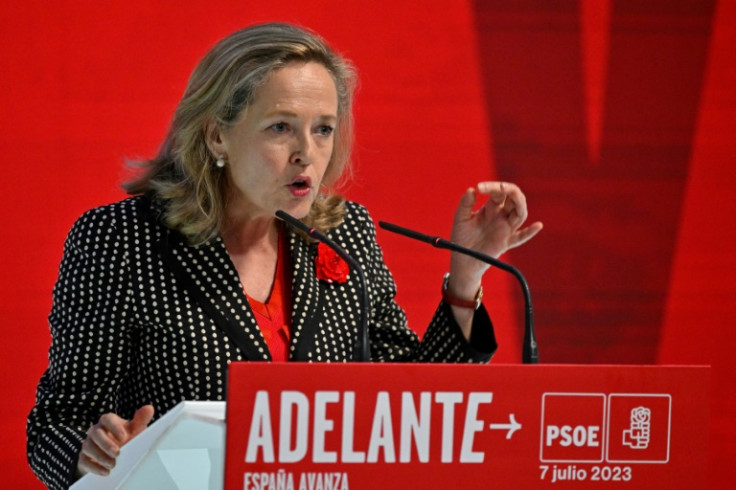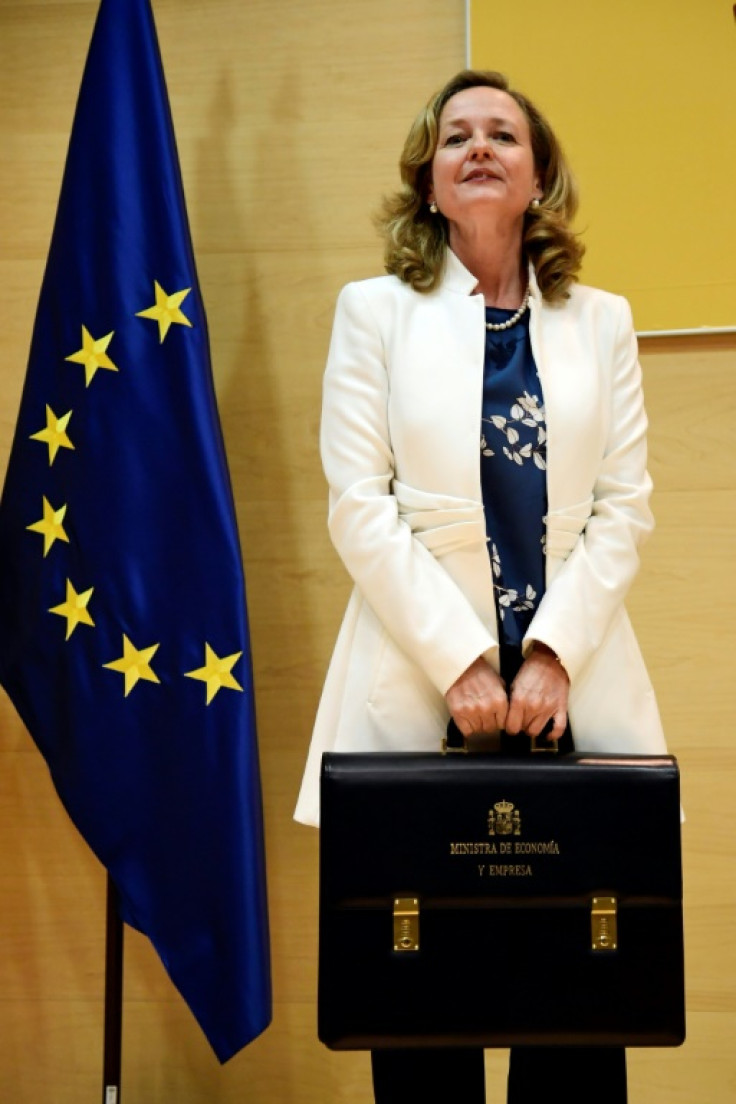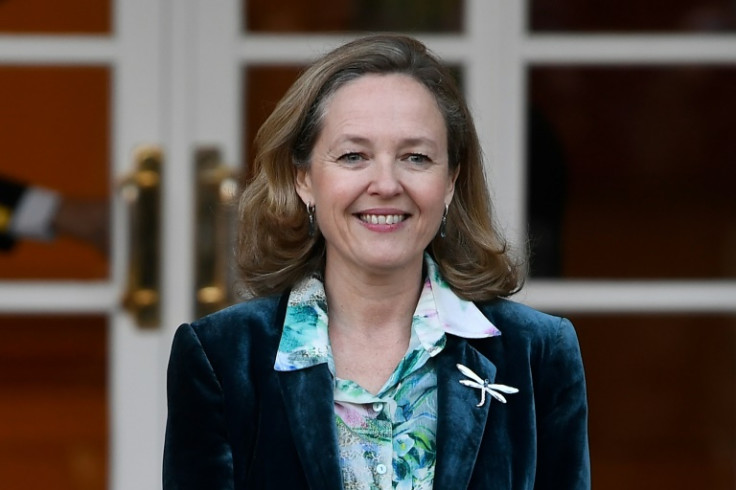
Spain's Economy Minister Nadia Calvino, the newly-named European Investment Bank (EIB) chief, is a politician who is well-versed in EU lore and a pragmatist with experience of navigating power struggles.
Since its creation in 1958, the EIB has had seven presidents, "all of them men, and never a Spaniard," the 55-year-old economist said while putting her name forward to become the first woman to run what is effectively the EU's financial arm.
And she's done it: Calvino was appointed to the EIB's top job at a meeting of European finance ministers, beating out Denmark's Margrethe Vestager.
She will replace Germany's Werner Hoyer whose second six-year term as EIB president finishes at the year's end.
The decision consolidates the international stature of a woman who, since entering politics five years ago, has established herself as a political heavyweight in Spain's left-wing government, with her liberal outlook ensuring budgetary orthodoxy among radical left-wing peers.
Calvino was born in 1968 in A Coruna, a port city in Spain's northwestern Galicia region, to a father who was a lawyer and headed Spain's public television in the early 1980s.
She grew up in Madrid where she studied economics then law. Fluent in English, French and German as well as her native Spanish, Calvino worked as an interpreter to finance her studies.
After completing her degrees, she held senior positions in the economy ministry under both conservative prime minister Jose Maria Aznar and his Socialist successor Jose Luis Rodriguez Zapatero.
In 2006 she moved to Brussels where from 2014 to 2018 she was the director general of the European Commission's budget department.
Her political career began in 2018 when Sanchez, who was recently sworn in as premier, named her his economy minister as well as one of his deputy prime ministers.
Calvino's appointment was seen as an attempt to send a message of stability to the markets which were concerned about the new minority Socialist government's reliance on the far-left and on Basque and Catalan separatist parties to pass legislation.
The bet paid off, despite occasional tensions between Calvino and hard-left members of Sanchez's cabinet.
A fan of 1950s films who is said to be polite-but-tough during negotiations, Calvino had to steer Spain's economy through the fallout of the Covid-19 pandemic and the upheaval caused by Russia's invasion of Ukraine.
On her watch, Spain's economy expanded by 5.5 percent last year -- one of the fastest rates in Europe -- while inflation fell to 1.9 percent in June and stood at 3.2 percent in November, one of the lowest levels in the eurozone.
A mother of four, Calvino was in 2020 a candidate to lead the Eurogroup panel of eurozone finance ministers, a post she didn't win despite Madrid's campaign to support her.
But in December 2021 she was selected to chair the IMF's monetary and financial committee.
With a penchant for animal-shaped brooches that carefully match her outfits, Calvino made headlines last year after refusing to take part in a photo at an event organised by the Madrid employers' federation when she realised she was the only woman in the group.
The lack of parity in circles of power is "an issue that we must take seriously" which is "key for the proper functioning of our societies," she said at the time, adding she would not take part in any more debates in which she is the only woman.









